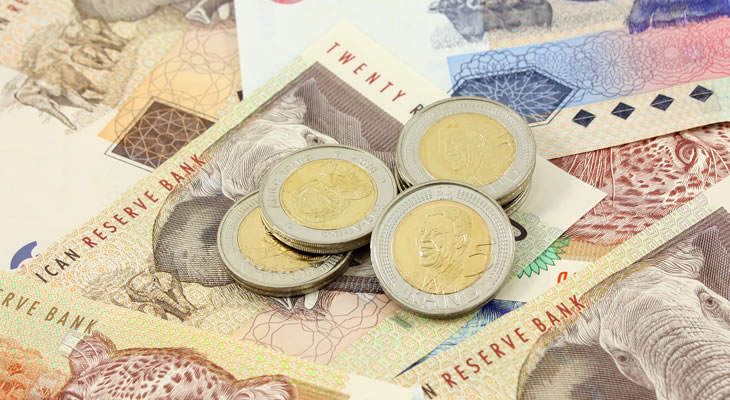The Pound has risen higher against the South African Rand on Thursday’s trading session, from an earlier exchange rate of 18.4520 to a more recent 18.4813.
This appreciation is mainly down to the further Rand weakness, following a warning from a former Zimbabwean Finance Minister.
Tendai Biti has stated if there is a Zimbabwean ‘implosion’ now that new leadership is in place, it would be ‘a South African issue too’.
The two countries are close neighbours, joined with a common border in Zimbabwe’s south and South Africa’s north.
If the adjustment of power in Zimbabwe does result in more turbulence or Biti’s potential ‘implosion’, the GBP/ZAR exchange rate could rise even further if the Rand tumbles.
(First published November 23rd, 2017)
The Pound has made a moderate gain against the South African Rand recently, but remains highly vulnerable during the post-budget period.
Over in South Africa, the latest dip disguises sentiments that a change could be in the air for the national leadership.
Cracking the Productivity Puzzle could Inspire Pound to Rand Rally
With the Autumn Statement now out open for economists to analyse, one of the key takeaways has been that UK productivity levels remain woefully low.
The so-called ‘productivity puzzle’ remains a mystery to UK economists and policymakers, with Office of Budget Responsibility (OBR) Chairman Robert Chote saying;
‘Productivity growth has been far weaker since the financial crisis than it was for decades beforehand.
Output per hour has risen by just 0.2% a year since 2008, compared to an average of 2.1% a year over the preceding 35 years’.
Further emphasising the problems caused by disappointing growth has been Amit Kara of the National Institute for Economic and Social Research (NIESR);
‘Productivity has just been a huge puzzle in Britain. That weakness has been on for such a long time that it is difficult to ignore that altogether.
The OBR have [productivity] growing at slightly above 1%. Our own forecast is 1%, so we are slightly more pessimistic than they are about productivity’.
There is speculation that the UK could be nearing a turning point on the productivity problem, as with unemployment so low, the sentiment is that something must ‘give’.
If the UK does start to see a long-awaited improvement in national productivity, then the Pound could make progressive gains against the Rand.
ZAR/GBP Exchange Rate could Rise if Zimbabwe Aftermath Threatens Zuma
The South African Rand has declined against the Pound recently, although it did see a notable rise over November 20th and the 21st thanks to Zimbabwean news.
When it finally became clear that Zimbabwe’s unpopular but long-standing leader Robert Mugabe was leaving, the Rand appreciated against the Pound.
This may have been down to hopes that the spirit of revolution could take hold in South Africa, a neighbouring country which has also suffered from a troublesome leader.
Like Mugabe, ZA President Jacob Zuma has faced criticism in the past for his financial decisions and also has a substantial back-catalogue of corruption allegations.
Zuma is due to step down as leader of the African National Congress (ANC) in December; this is the current ruling party in South Africa.
He is still set to remain national President after this change, however, so his influence on the economy and the country would not be especially diminished.
If the Zimbabwean incident provides South Africans with the drive needed to try and oust Zuma for good, the South African Rand could initially crash on such news.
In the event that Zuma were removed from office and a less controversial successor took the reins, however, then the Rand could undergo a resurgence against the Pound.
Recent Interbank GBP ZAR Exchange Rates
At the time of writing, the Pound to Rand (GBP ZAR) exchange rate was trading at 18.4520 and the Rand to Pound (ZAR GBP) exchange rate was trading at 0.0541.


Comments are closed.